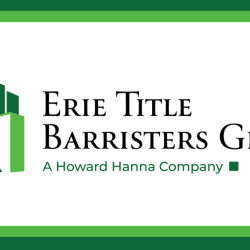Most Common Qualifications for Homebuyers + Main Things to Consider
Buying a home can be one of the most memorable times in someone’s life, but it can also be the scariest and anxiety-inducing! Will I qualify for a loan? Can I afford a down payment? How much will I qualify for? These are all questions we may ask ourselves when considering that significant investment. To help keep your mind at ease, it’s best for you to understand the home buying process.
Top 4 Factors to Consider
Take a look at some of the major factors that can determine whether you’re ready to purchase a home.
Income Stability
It’s essential to look ahead and determine how purchasing a home can affect your future finances. First, you should have a history of stable employment in the past and feel comfortable that your income will remain secure over the next few years. Lenders will need to see at least two years of tax returns or pay stubs as proof of income. Lenders may also prefer that you deposit the money for the down payment for at least 60 days. This will assure the lender you will have the funds to finance your mortgage. If you feel like your income isn’t steady enough or won’t remain constant, it probably isn’t the best time to purchase a home.
Managing Debt
Most of those in the U.S. have some debt, but how well can you manage it? When it comes to a home loan, those with a solid history of managing debt are likelier to get better rates and terms of the loan.
Paying your debts each month can lead to a higher credit score. The higher your credit score is, the more qualified your lender will consider you.
More credit information:
- You will qualify for a lower interest rate with a higher score.
- A good credit score, according to FICO, is 700, but a score of at least 740 is needed for the best rates.
- For many of those with no credit history, obtaining a mortgage is near impossible.
Building Credit
Among many younger populations, it’s common to see people with no credit experience. Even with no credit history, it is possible to build your credit! It will require you to put the effort into a couple of different tactics. Strategies to help you establish credit can include:
- Do you know of anyone with established and good credit? If so, they can help you get a loan or to add you as an authorized user to one of their existing credit card accounts. You will then have your first account listed in your credit report, and you can begin to build a positive payment history. Your payment history and experience with the account will help you build a score of your own over time.
- Apply for a credit account that is specific to people that are new to credit. Certain loans, like credit-builder loans, can help you start building credit. These loans can be given from a community bank or credit union.
- Always confirm that the lender will report your account and payment history to one or more of the three main credit bureaus (Experian, TransUnion, and Equifax).
- Use a program such as Experian Go™ to create an Experian credit report. With Experian Go, you can sign up for an Experian membership and create a credit report. You can then begin by adding accounts to your report with the program’s help and start building up your credit report!
Emergency Fund
When considering whether to purchase a home, it’s important to consider the worst-case scenario in various circumstances. Experts recommend that potential homebuyers have enough cash to live on for three to six months in a savings account in case the unexpected happens, such as a job loss or natural disaster. Homes will require maintenance and repairs over time, with older homes in worse shapes more likely to need upgrades that can be rather costly. Homeowners spend around $3,192 on yearly maintenance, with almost $2,000 included in repairs!
The down payment requirements will vary depending on the type of home loan you get. For conventional loans, as much as 20 percent down can be required. With other loans, however, like Freddie Mac and Fannie Mae, you could only be required to pay as low as 3% down. There are grants and programs available to homebuyers to help with down payments, with over 2,500 homeownership programs across the country administered by federal, state, county, or local government agencies, nonprofits, and employers.
It’s important to note that borrowers who put down less than 20% will be required to pay private mortgage insurance (PMI). PMI is set up to protect the lender, so they won’t lose money if something happens with the borrower. The cost of PMI will be added to your monthly mortgage payment and can range between 0.5% to 2% of the loan amount.
When considering how much money you are willing to put up for the down payment, you should consider your plans for the future and the life of your loan. Putting up a down payment as high as you can afford will save you lots of interest in the long run.
After learning more about some factors in purchasing a home, you may feel more confident or uneasy about your circumstances. When it all comes down to it, it is best to take your time and be prepared before you go for that big buy.
At 1st Priority Mortgage we are here to help you through the home buying process. Contact one of our Mortgage Consultants if you are ready to take the first steps to own a home.










